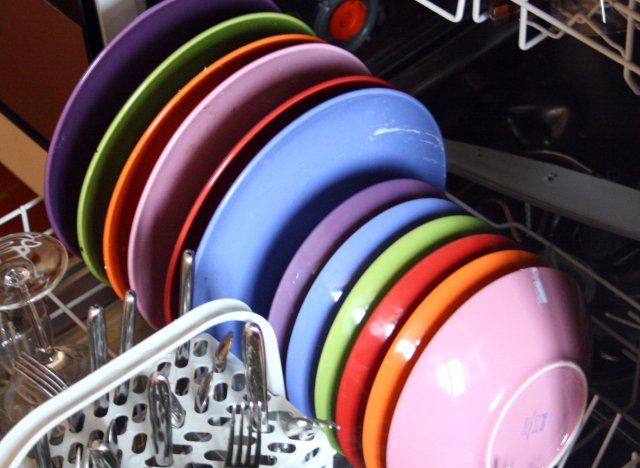
Whether you bought your home appliance at a local outlet or a big-box retailer, chances are you purchased it with the intent it would last a long time. But just as cars need the occasional oil change and tune up to extend their mileage, your home appliances need some added attention now and again too. Well-maintained appliances use less energy, require fewer repairs, and last longer. And all of these benefits add up to more savings in your pocket. My experience in the appliance industry has taught me you can't stop time, but there are a few things you can do to extend the lifespan of your appliances and keep them running well beyond their warranties.

Photo by Flickr user David Locke
Below I've outlined my tips to extend the lifespan of the most commonly used home appliances:
REFRIGERATOR. The refrigerator's gaskets (the plastic strip that forms a seal between the fridge and doors) help keep cool air inside the fridge, conserving energy. To help the gaskets stay elastic and form a better seal, periodically wipe them clean, removing all residue and coat them with a thin film of Vaseline.
Dirty or dusty refrigerator coils can restrict airflow through the appliance, causing it to overheat and potentially break down. Remove your fridge's kick plate (the front panel near the floor) or reach around the back of the fridge and clean the coils with a handheld vacuum.
DISHWASHER. Like the refrigerator, a faulty gasket can prevent your dishwasher from operating correctly and efficiently. Dirt, cracks, or other buildup on the gasket can cause your dishwasher to leak. I recommend regularly cleaning it with soap and water to keep a watertight seal.
When loading your dishwasher, be careful to not damage the racks. The racks are typically coated with a vinyl material that can be damaged from rough use. Dishwasher racks are typically very expensive and often rival the cost of a new appliance, so keeping them in good shape can prevent another unwanted bill.
WASHING MACHINE. The #1 useful tip for your washing machine is ... Don't overload the washing machine! Yes, it really can be that simple. Clothes need to be able to move freely during a wash cycle. If the machine is jammed full of clothes, it will need more energy to move them around. This means added strain on the washer's motor, transmission, belts, and other parts.
That being said, it's also very important to not under-load the machine. Small loads can lead to off-balance cycles, which put a strain on the drive components. Plus, small loads waste water and energy, since there is very little difference in the amount of energy and water used for a full load and small load.
CLOTHES DRYER. Like the washing machine, it's important to not overload the clothes dryer. A large load places increased strain on the appliance as it struggles to effectively dry the clothing. Also be aware of your dry time. Thirty-five minutes is typically plenty of time to dry your clothes, compared to the 60 minutes dryers are usually set for. Reducing dry time saves energy and decreases the strain put on your dryer, as well as your clothes. If your dryer has an auto-dry setting, use it. Auto-dry heats only as much air as necessary and will reduce energy use.
It's also important to regularly monitor the dryer's external vent cap -- located outside your home -- for a buildup of lint and dust. Debris prevents the cap from operating normally and reduces airflow, potentially causing premature failure of the motor and thermostats. Plus, it's a potential fire hazard.
Finally, for all major appliances, it's advisable to fix minor problems before they become a bigger issue and affect other components. Unusual leaks and noises should be investigated as they occur to help minimize the cost of maintaining your appliances and prolong their lifespan.